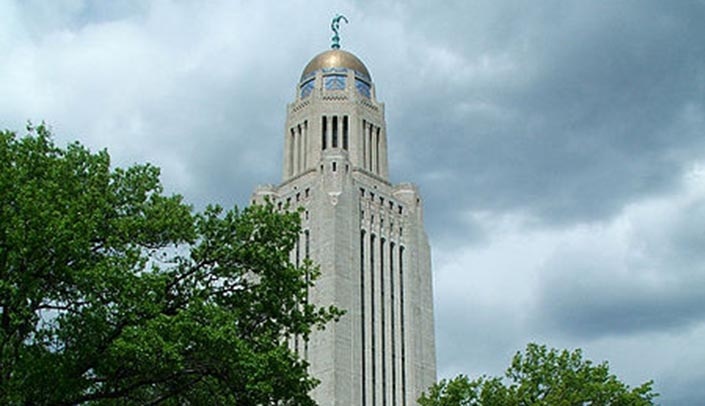The Nebraska Legislature on Tuesday gave final approval to a two-year state budget package that would fund core needs of the University of Nebraska.
The budget passed on a 35-12 vote after an amendment to reduce the university’s funding by $7.3 million failed. The budget now heads to Gov. Pete Ricketts for consideration; the governor has until Monday to sign it, veto it or issue line-item vetoes.
If signed, the budget would fund the request NU submitted to policymakers last fall for state appropriation increases of 3% in 2019-20 and 3.7% in 2020-21. Those increases would cover core needs including salaries and health insurance, operations and utilities, and would help keep tuition affordable for the university’s 52,000 students.
President Hank Bounds, Ph.D., praised lawmakers for their hard work in making higher education a priority for the state, particularly after a challenging fiscal period that resulted in multiple funding cuts to NU.
“The budget approved today by the legislature represents a thoughtful, forward-thinking investment in affordable, quality higher education for the people of Nebraska,” Dr. Bounds said. “Chairman (John) Stinner and Vice Chairwoman (Kate) Bolz have shown great leadership in guiding this budget through the process. They, together with fellow Appropriations Committee members Senators (Robert) Hilkemann, (Anna) Wishart, (Tony) Vargas, (Mike) McDonnell and (Myron) Dorn, have been clear and deliberative in setting priorities to guide their decisions about the future of Nebraska.
“We are grateful for the commitment a strong majority of the legislature has shown to Nebraska’s young people, particularly the 52,000 students of the University of Nebraska, and the long-term economic and workforce growth of the state. We look forward to Gov. Ricketts’ consideration.”
Dr. Bounds also thanked the numerous NU students, faculty, staff and supporters who have advocated for the university throughout the legislative session, noting their stories of NU’s work and impact have clearly made a difference with policymakers. More information on the university’s advocacy efforts is available here.
